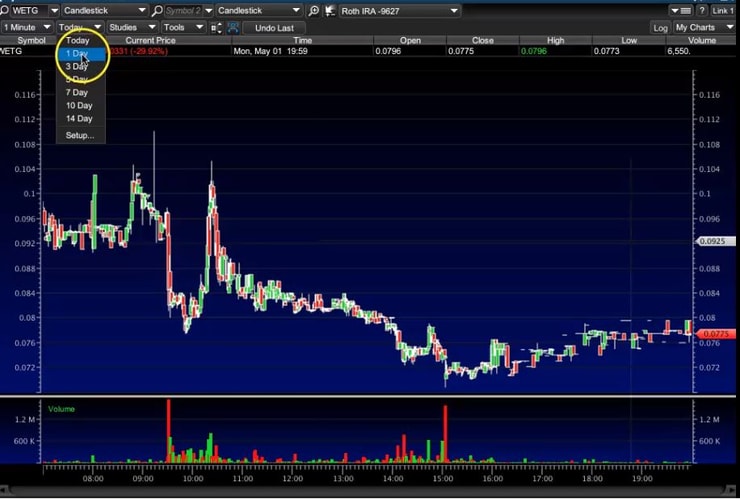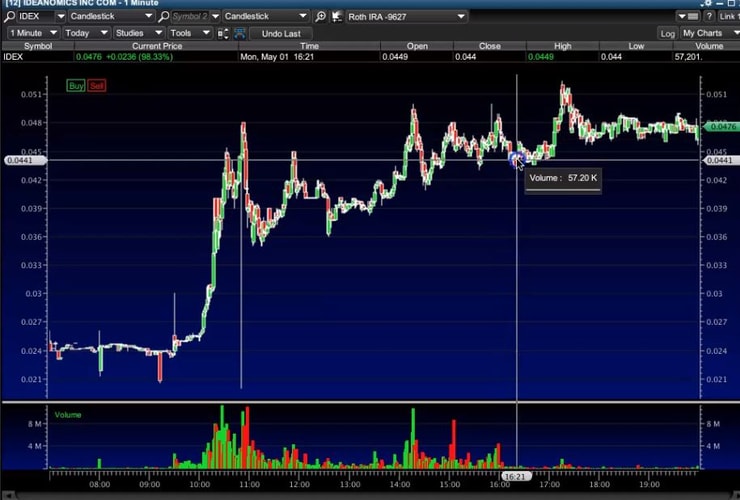Regional bank stocks on the edge of collapse… low-float Chinese pumps running…and the Big FOMC announcement today…
What a wild week and it’s only Wednesday.
It’s easy to let your emotions get the best of you in a market like this.
In fact, if you’re not careful you can wipe out days, weeks, or even months worth of gains by making one mistake.
That’s why I’m constantly finding myself doing this one thing over and over.
It helps me stay focused, aware of the dangers that lurk, and puts me in a position to take advantage of low-risk/high-probability setups.
Not only will I share with you why it’s so critical you implement this…but I’m also going to share my thoughts on this volatile market.
Staying Fresh
My schedule right now is absolutely nuts. I’ve been flying across the globe non-stop.
I’ve been trading in Turkey lately, working on charity, and trying to raise more money for the people there after the devastating earthquake.
That said, my mind is not completely on trading.
That’s why I’ve taken smaller and more calculated positions.
One of those trades was on Friday, my Weekend Trade in the ticker symbol WETG.
Low-float Chinese stocks have been hot lately, with several of them having triple-digit moves in a single day.
I decided to take WETG late in the afternoon on Friday.
It actually traded higher in the after hours, giving me a chance to take profits.
But since this is a Weekend Trade…I really try to hold onto these until Monday morning.
I didn’t take profits and on Monday the stock was trading lower and I cut my losses.
Was this a bad trade?
No.
If you were watching Monday’s action you would have seen other Chinese stocks surging…
I had the right idea…just didn’t pick the right stock.
More Breaking News
- Redwire Stock Falls as Financial Challenges Persist
- TeraWulf Expands Infrastructure, Joins Texas AI Data Center Venture
- Blue Owl Capital Faces Legal Turmoil Amid Allegations of Misleading Investors
- SoFi Technologies Faces Price Target Cut, Stock Slides
I don’t judge my trades based on if I lost money or not. Sometimes we can have a good idea but not make money on it.
That’s why it’s critical you review all your trades after each session. If you want extra credit, review trades you didn’t take, and try to figure out why those stocks made the moves they did.
For me, I review my trades to see what adjustments I need to make.
For example, the WETG trade taught me that I probably should look to take profits quicker when the action in these stocks are choppy.
And that’s what I did when I traded IDEX.
IDEX was experiencing its first green day up…
I like this symbol because it’s a former Supernova…
And if there’s one thing you learn from doing this is that Supernova’s have a higher probability of becoming Supernovas again.
Similar type of setup here…I was long near the end of the day, hoping it could pop in the after hours and I could take profits.
It did exactly that…And I was able to book my profits.
My average price was $0.0449…and my exit was at $0.051…locking in a 13.5% gain.
Now, the stock did get up to $0.07 on Tuesday…but how could you have predicted that given the bloodbath in the regional bank stocks.
But guess what?
It’s okay because I’m tinkering right now…
Staying fresh and experimenting some new ideas.
And as long as I’m trading these plays with small size and managing risk properly, I don’t see anything wrong with that.
If you’re not sure what’s working in this market right now or trying to discover a new strategy that you can start implementing then I highly suggest you check out these two strategy presentations:
The Weekend Trade ====> Watch Here
Supernovas ======> Watch Here
You’ll be glad you did.










Leave a reply